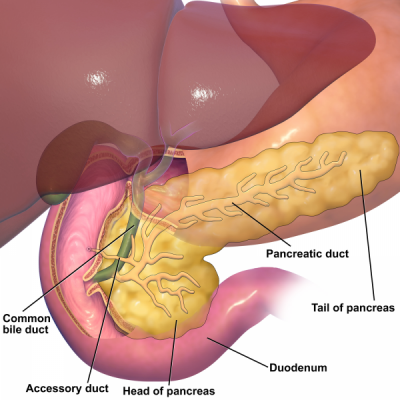Let’s be honest: Unless we’ve been diagnosed with some condition, we don’t really give any thought to our inner organs, and we know surprisingly little about where they are, what they do, and why and how we should take good care of them. Why not change this in 2017, and get a tad bit more educated on our how our body works, and how it functions optimally?
Considering the prevalence of pre-diabetes, energy fluctuations, brain fog and hormone imbalances that I see in my practice, a good place to start could be your pancreas. This is a vital and under-appreciated organ that has multiple functions. Among other things, it helps you control your blood sugar – and thus your well-being, in more ways than one.
Pancreas 101:
The pancreas is a roughly pear-shaped organ that’s tucked underneath your stomach and connected to the bile duct (a tube coming down from the gallbladder) and the duodenum (the first part of your small intestine). It has many important jobs to do, the two most crucial being a so-called endocrine function, which regulates blood sugar, and an exocrine function, which helps digestion.
What does my pancreas do?
Your pancreas and your blood sugar levels: The pancreas secretes three important hormones directly into the bloodstream: insulin, glucagon and somatostatin. Together, they control blood sugar levels: glucagon raises the level of blood sugar, insulin lowers blood sugar, and somatostatin slows down your digestion.
Your pancreas and your digestion: The pancreas produces a juice containing a base called bicarbonate, as well as a mix of enzymes needed in order to digest food. This fluid combines with bile from the gallbladder and flows into your small intestine. Together, the bile and the pancreatic juice let our bodies break down and absorb the fats, proteins and carbohydrates we eat. The bicarbonate neutralizes the stomach acid that’s mixed in with the food when it reaches your duodenum– if it weren’t for the pancreatic juices (or if your pancreas can’t do its job), the acid could attack the walls of your small intestine!
What if my pancreas can’t do its job?
-If our blood sugar levels are out of whack, important organs like the brain, liver or kidneys cannot function optimally. If there is too much insulin in your blood, you might experience symptoms of low blood sugar, such as dizziness or irritability. If there is too little insulin or your body can’t use it effectively, you might notice that you are constantly thirsty or have to pee frequently. These may be signs of high blood glucose levels – in some cases even of diabetes. It’s essential to diagnose and properly treat diabetes, to avoid further health complications.
-Without sufficient pancreatic enzymes, our bodies cannot make use of the energy and nutrients we ingest with our food. This may lead to digestive issues such as gas or bloating after large meals or even food allergies.
-Consistently low bicarbonate to neutralize the stomach acid could be the cause of an ulcer in your duodenum.
-Finally, the pancreas could become inflamed (a painful condition called pancreatitis), or could develop tumors.
How can I support my pancreas?
I’m glad you asked. You can keep your pancreas in good shape by being active, and by eating regular, balanced meals with high quality, minimally processed ingredients. Support a challenged gland with an especially pancreas-friendly diet and cut out known irritants such as alcohol. Get more ideas during a personalized consultation, or stay tuned for a post on how to love your pancreas…
References available upon request.

